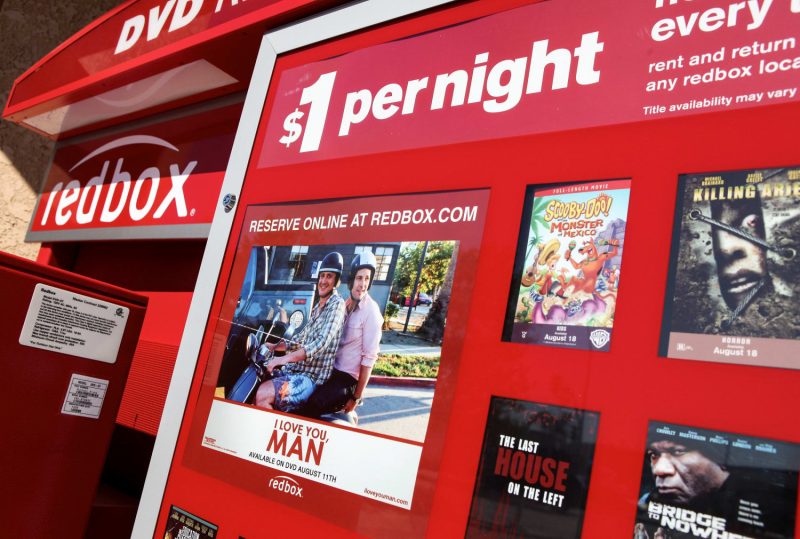DVD rental service Redbox is set to shut down after 22 years in business, as streaming continues to dominate the at-home entertainment market.
Redbox’s parent company, Chicken Soup for the Soul Entertainment, changed its Chapter 11 bankruptcy case, filed last month, to a Chapter 7 liquidation case on Wednesday. The conversion signifies that the company couldn’t come up with a repayment plan for its outstanding debts and will soon turn to selling off assets to pay back creditors.
With the change to a Chapter 7 case, all employees will now be laid off and Redbox’s 24,000 kiosks will close. Lawyers for Chicken Soup for the Soul told the court they had worked “day and night” to find a solution to avoid the outcome, Deadline reported.
A current Redbox employee, who asked not to be identified due to uncertainty over future legal actions he said some at the company are considering, said the news has been destabilizing.
“Sentiment’s in the gutter,” he said. “We have coworkers who’ve missed rent, facing eviction.”
The employee said staffers were told during a town hall meeting Thursday that they wouldn’t be receiving pay for the hours they’ve worked so far this month. Additionally, he said layoffs wouldn’t be made official until a bankruptcy trustee is appointed, raising concerns about when employees can file for unemployment insurance.
A Delaware judge overseeing the case indicated Wednesday that “there is no means to continue to pay employees,” the Hollywood Reporter reported Thursday.
A lawyer for Redbox and a representative for the company didn’t immediately respond to requests for comment.
Founded in 2002, Redbox at its peak shook up Hollywood with its rental service, which at the time was cheaper than buying a DVD. But with the rise of digital offerings and streaming platforms, DVD sales collapsed during the 2010s.
In 2022, Redbox had $325 million in debt, and Chicken Soup for the Soul Entertainment acquired it.
The parent company had accumulated $1 billion in debt by the time of its bankruptcy filing last month. According to court documents filed earlier this month, it was struggling to make payroll and pay for health care plans for its more than 1,000 employees.
Redbox is just the latest physical media company that has struggled to survive streaming’s dominance. Some 99% of U.S. households pay for at least one service, a Forbes survey found this year; others rely on free ad-supported streaming platforms. This year, Best Buy stopped selling physical media like DVDs and Blu-rays, attributing it to the shift in consumption of entertainment.
Streaming, meanwhile, reached a record-high share of TV viewership in May, a recent Nielsen report found.
This post appeared first on NBC NEWS
